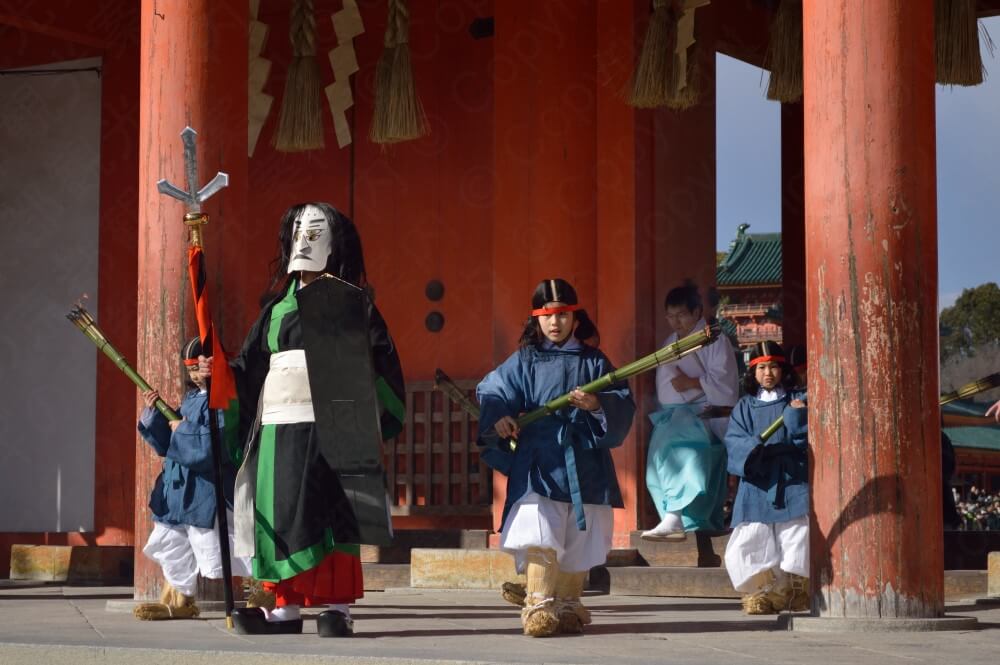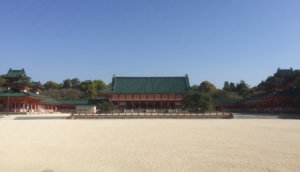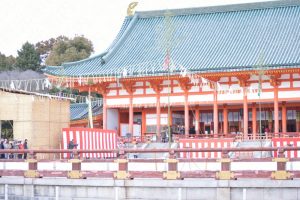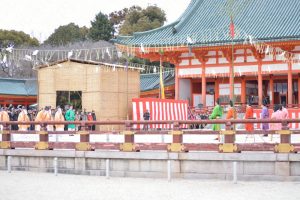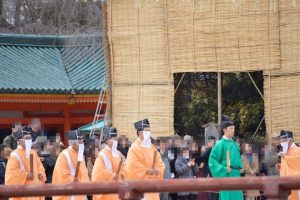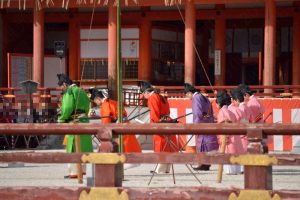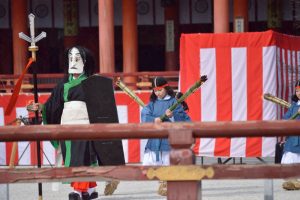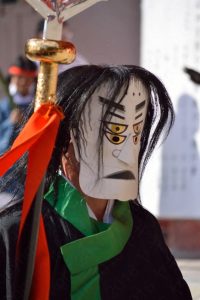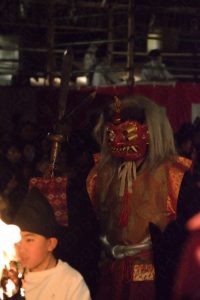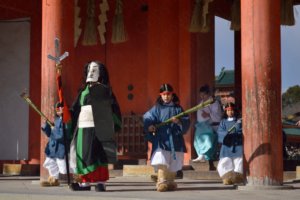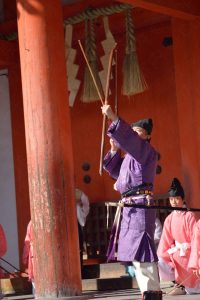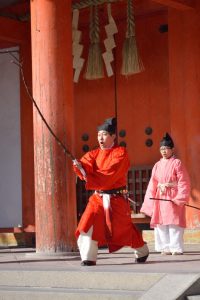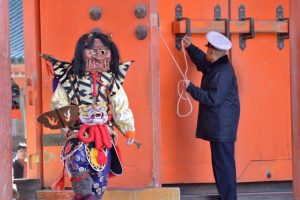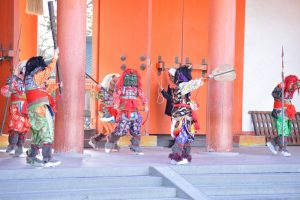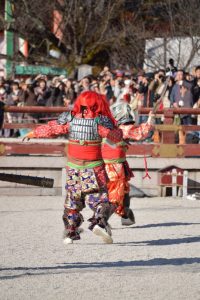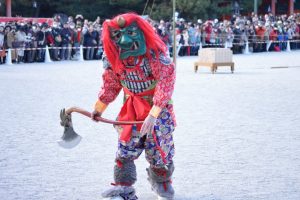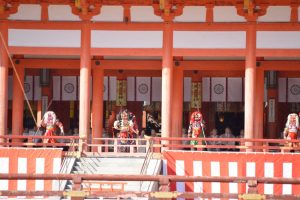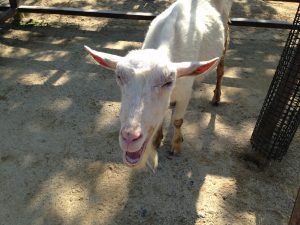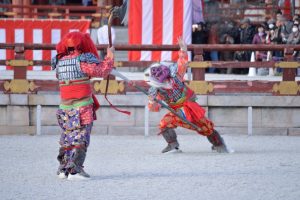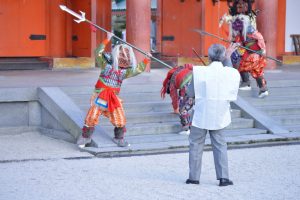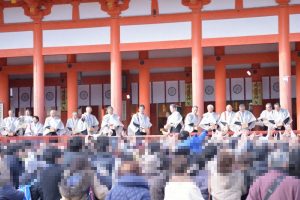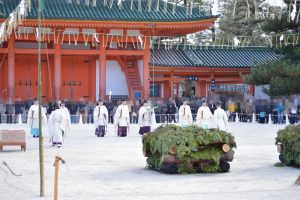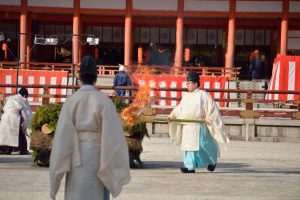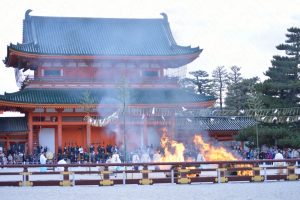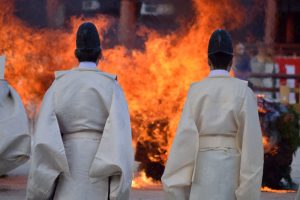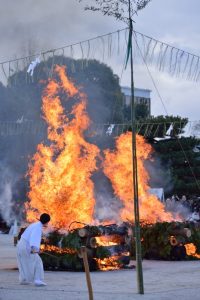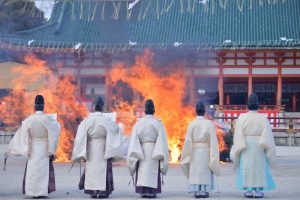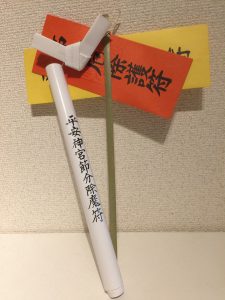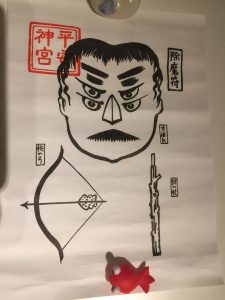What is “Setsubun”?
On Feb. 3rd, Japanese people enjoyed Setsubun. (It takes place on 2/2/2025)
Setsubun (節分) literary means “The day which divides each season”. It was a ritual held on the eve of the begging of every season and started as an annual event of the imperial court.
In Heian period, people believed the ending of each season caused evil spirit which brought them illness and misfortune. So, they started to hold the ritual to put down it.
They confounded the evil spirit with Oni (鬼), the imaginary creature. So, to drive away anything evil, they chased around and take out Oni of their homes.
In the midst of Edo period, the ritual lost its original role and became a ritual which was taken place only in the new year’s eve.
It may sound strange to celebrate new year’s eve on February. In Heian period, the Japanese lead their lives on lunisolar calendar. In the calendar, new year started on February in Gregorian calendar.
Check the website of Heian Jingu shrine.(In Japanese but you can celect languages )
Dainanogi (大難の儀)
Dainanogi is a Setsubun ritual presented at Heian Jingu shrine in the same form as it was took place in Heian period. Heian Jingu shrine was built as a reproduction of “Chodoin”(朝堂院), the most important building in which emperor held ritual and political decisions. It is a suitable place for Dainanogi.

In front of “Daigokuden” (大極殿), there are four bamboos called “Imitake”(斎竹). They work as a kind of beacon for Kami, the Shinto God. Each bamboo is tied with “Shimenawa”(注連縄) that tells sacred place from secular one. The place devided with Imitake and Shimenawa is called “Saijyo”(斎場), the sacred place for ritual.
People in ancient clothes gather around Saijyo. Now the Setsubun ritual starts.
The men in orange are “Sairo”(斎郎), the high-ranking goverment officials. They serve food for Kami.
The man in green is “Onmyoji”(陰陽師), the bureaucrat of Ministry in charge of astrology and calender. He reads out “Saimon”. Saimon is a kind of prayers.
The men in orange are “Tenjobito”(殿上人). They are kind of servants for emperor. The man in purple is “Shokei”(上卿). He played a role as a prime minister in ancient cabinet.
In the middle of the ritual, a man in strange mask is getting in the Saijyo.
He is “Hososi”, the ancient shaman who takes away Oni.
Now take a look at his face. He has four eyes to search for evilness. In the begging, he was a shaman to ger rid of Oni but people confused him with Oni gradually because of hid strange appearance.
Hososi hit a plaque with a pike and shout out “Oniyaroh! (It means “I’m driving out Oni!)”
Then Shokei shoots off allows and Tenjobito swings a stick to let the evilness go away.
After that, they walk around the Saijyo three times and go to “Otenmon (應天門)” the main gate of Heian shrine to take Oni out of the shrine.
The mission is completed. Heian shrine is in peace as its name indicates (The word “Heian” means “peace” in Japanese.
Dances of Oni (鬼の舞)
Oni get into Heian shrine. They escaped narrowly. (This part is a show, not a ritual.)
They occupy Daigokuden. The evilness rules the world?
たすけて~ (HEEEEEEELP!)
ぎゃあああ
“Toshi otoko and onna (Women and men born in the same year as the current year in Chinese zodiac) ” scatter soy beans to drive Oni out of shrine. Why soy beans? It based on an anecdote. In Heian period, emperor Uta’s era, Oni in Mt. Krama raided Kyoto. Vaisravana (guardian god of Buddhism) gave the revelation to wipe out Oni with soy beans.
After Oni have gone, Toshi otoko and onna scatter soy beans in paper bag to people. If you catched the bag, you could gain fortune and health.
Ohitaki-shinji (大火焚神事)
Ritual again. Shinto priests make bonfire and put “Hitakigushi (火焚串), pieces of wood on which wishes are written into the fire.
Amulets of Setsubun (平安神宮節分除魔符)
These are amulets we can have only Setsubun.
How to get to Heian Jingu shrine?
Kyoto city bus: Okazaki koen/Bijutsukan Heian Jingu mae bus stop.

